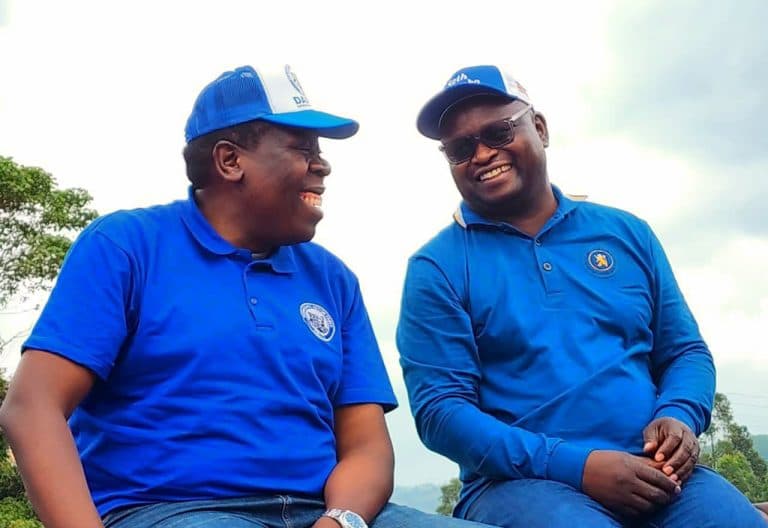We're loading the full news article for you. This includes the article content, images, author information, and related articles.
The upcoming Malava parliamentary by-election has intensified political rivalries, with Democratic Action Party-Kenya (DAP-K) candidate Seth Panyako at the center of a high-stakes contest involving key political figures and parties.

The Malava parliamentary by-election, scheduled for Thursday, November 27, 2025, has ignited a fierce political battle in Kakamega County, drawing in prominent national and regional leaders. Political analyst Herman Manyora suggested that a strong campaign by DAP-K, featuring Kakamega Senator Boni Khalwale and Trans Nzoia Governor George Natembeya, could secure an early victory for their candidate, Seth Panyako.
Panyako, who also serves as the Secretary-General of the Kenya National Union of Nurses (KNUN), was cleared by the Independent Electoral and Boundaries Commission (IEBC) on Wednesday, October 8, 2025, to contest the seat. This clearance came despite a petition challenging his eligibility, alleging he had not resigned from his position as a Board Member of the Local Authorities Provident Fund (LAPFUND) within the stipulated legal timeframe.
The by-election has exposed cracks within the opposition, particularly concerning the Democracy for Citizens Party (DCP), led by former Deputy President Rigathi Gachagua. Manyora expressed disappointment that DCP refused to withdraw its candidate, Edgar Busiega, from the race, contrary to the spirit of political zoning.
DAP-K leaders have issued an ultimatum to DCP, threatening to sever ties with the broader opposition coalition if Busiega remains in the Malava contest. They argue that fielding multiple opposition candidates risks splitting votes, potentially benefiting the ruling United Democratic Alliance (UDA).
Seth Panyako's bid has garnered significant backing from DAP-K, with party leader Eugene Wamalwa actively campaigning for him. Notably, Kakamega Senator Boni Khalwale, a member of the UDA party, has publicly endorsed Panyako, urging DCP to withdraw its candidate to consolidate opposition votes. Khalwale's support for an opposition candidate over his own party's nominee, David Ndakwa, highlights the complex and often fluid nature of Kenyan political alliances.
Trans Nzoia Governor George Natembeya, also a prominent figure in DAP-K, is expected to play a crucial role in Panyako's campaign. His involvement, alongside Wamalwa and Khalwale, is seen as a strategic move to rally support for DAP-K in the Western region.
Meanwhile, the UDA party is actively campaigning for its candidate, David Ndakwa, with Prime Cabinet Secretary Musalia Mudavadi and President William Ruto's aide, Farouk Kibet, leading the efforts. This indicates the ruling party's determination to retain the Malava seat, which fell vacant following the death of MP Malulu Injendi in February 2025.
Some opposition candidates, including Panyako and Wilberforce Tuvei of Kenya Moja Alliance, have accused the government of using local administrators, such as chiefs and deputy county commissioners, to campaign for the UDA candidate. Kakamega County Commissioner Mwangi Meru has dismissed these claims as rumors, asserting that government officers do not engage in politics.
The ongoing legal challenge to Seth Panyako's eligibility due to his role at LAPFUND remains a point of contention, with the petition arguing he failed to resign within the legally required period. The extent to which this legal hurdle could impact his candidacy is yet to be fully determined.
The internal discord within the opposition, particularly the standoff between DAP-K and DCP over candidate withdrawal, raises questions about the long-term viability of their alliance and its potential impact on future elections.
The Malava by-election is seen as a critical litmus test for political realignments ahead of the 2027 General Election. Observers will be keenly watching the voter turnout and the performance of the various parties, particularly how the internal dynamics within both the ruling and opposition coalitions play out in the final results. The outcome could significantly influence political strategies and alliances in the Western region and beyond.
Keep the conversation in one place—threads here stay linked to the story and in the forums.
Sign in to start a discussion
Start a conversation about this story and keep it linked here.
Other hot threads
E-sports and Gaming Community in Kenya
Active 9 months ago
The Role of Technology in Modern Agriculture (AgriTech)
Active 9 months ago
Popular Recreational Activities Across Counties
Active 9 months ago
Investing in Youth Sports Development Programs
Active 9 months ago
Key figures and persons of interest featured in this article